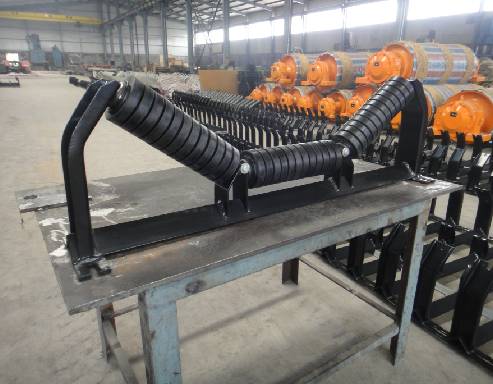 Afrikaans
Afrikaans  Albanian
Albanian  Amharic
Amharic  Arabic
Arabic  Armenian
Armenian  Azerbaijani
Azerbaijani  Basque
Basque  Belarusian
Belarusian  Bengali
Bengali  Bosnian
Bosnian  Bulgarian
Bulgarian  Catalan
Catalan  Cebuano
Cebuano  Corsican
Corsican  Croatian
Croatian  Czech
Czech  Danish
Danish  Dutch
Dutch  English
English  Esperanto
Esperanto  Estonian
Estonian  Finnish
Finnish  French
French  Frisian
Frisian  Galician
Galician  Georgian
Georgian  German
German  Greek
Greek  Gujarati
Gujarati  Haitian Creole
Haitian Creole  hausa
hausa  hawaiian
hawaiian  Hebrew
Hebrew  Hindi
Hindi  Miao
Miao  Hungarian
Hungarian  Icelandic
Icelandic  igbo
igbo  Indonesian
Indonesian  irish
irish  Italian
Italian  Japanese
Japanese  Javanese
Javanese  Kannada
Kannada  kazakh
kazakh  Khmer
Khmer  Rwandese
Rwandese  Korean
Korean  Kurdish
Kurdish  Kyrgyz
Kyrgyz  Lao
Lao  Latin
Latin  Latvian
Latvian  Lithuanian
Lithuanian  Luxembourgish
Luxembourgish  Macedonian
Macedonian  Malgashi
Malgashi  Malay
Malay  Malayalam
Malayalam  Maltese
Maltese  Maori
Maori  Marathi
Marathi  Mongolian
Mongolian  Myanmar
Myanmar  Nepali
Nepali  Norwegian
Norwegian  Norwegian
Norwegian  Occitan
Occitan  Pashto
Pashto  Persian
Persian  Polish
Polish  Portuguese
Portuguese  Punjabi
Punjabi  Romanian
Romanian  Russian
Russian  Samoan
Samoan  Scottish Gaelic
Scottish Gaelic  Serbian
Serbian  Sesotho
Sesotho  Shona
Shona  Sindhi
Sindhi  Sinhala
Sinhala  Slovak
Slovak  Slovenian
Slovenian  Somali
Somali  Spanish
Spanish  Sundanese
Sundanese  Swahili
Swahili  Swedish
Swedish  Tagalog
Tagalog  Tajik
Tajik  Tamil
Tamil  Tatar
Tatar  Telugu
Telugu  Thai
Thai  Turkish
Turkish  Turkmen
Turkmen  Ukrainian
Ukrainian  Urdu
Urdu  Uighur
Uighur  Uzbek
Uzbek  Vietnamese
Vietnamese  Welsh
Welsh  Bantu
Bantu  Yiddish
Yiddish  Yoruba
Yoruba  Zulu
Zulu Conveyor Take Up Pulley - Essential Components for Efficient Conveyor Systems
Understanding Conveyor Take-Up Pulleys A Comprehensive Overview
Conveyor systems are crucial in various industries, enabling the efficient transport of materials over both short and long distances. One key component of these systems is the take-up pulley, which plays a vital role in maintaining the proper tension on the conveyor belt. This article provides a detailed look at conveyor take-up pulleys, their functions, types, and importance in conveyor system operations.
Function of Take-Up Pulleys
The primary function of a take-up pulley is to keep the conveyor belt taut as it moves across the system. Proper tensioning of the belt is essential for smooth operation, as it helps prevent slippage, misalignment, and wear on both the conveyor belt and other mechanical components. A well-maintained belt ensures optimal performance, reducing the risk of costly downtime and enhancing overall efficiency.
Types of Take-Up Pulleys
Take-up pulleys can be categorized into several types based on their design and application
. The most common types include1. Gravity Take-Up This system utilizes the weight of a counterweight to maintain tension in the conveyor belt. As the belt stretches, the counterweight descends, allowing for automatic adjustments. This type is commonly used in long conveyor systems where belt elongation can be significant.
conveyor take up pulley

2. Mechanical Take-Up Mechanical systems are manually adjusted using a series of screws and levers. Operators can tighten or loosen the belt tension as needed, making this type ideal for shorter conveyors or those requiring frequent adjustments.
3. Hydraulic Take-Up This advanced method uses hydraulic cylinders to apply tension to the belt. Hydraulic systems offer precise control and are suitable for heavy-duty applications where belt tension must be tightly regulated.
Importance in Conveyor Operations
The importance of take-up pulleys cannot be overstated. They contribute significantly to the longevity and reliability of the conveyor system. By ensuring proper belt tension, take-up pulleys help prevent issues such as
- Belt Slippage Insufficient tension can lead to slippage, causing delays and potential damage to the system. - Excessive Wear Incorrect tension leads to uneven wear and tear on the conveyor components, which can result in early failures and increased maintenance costs. - Misalignment Proper tension ensures that the belt remains aligned, reducing the risk of material spillage and ensuring smooth operation.
Conclusion
In summary, conveyor take-up pulleys are essential components that enhance the performance, reliability, and lifespan of conveyor systems. By maintaining the correct tension on the conveyor belt, they contribute to operational efficiency and reduce maintenance costs. Industries relying on conveyor systems should prioritize the selection, maintenance, and operation of take-up pulleys to ensure seamless material handling and transport. Understanding their functions and types will enable businesses to optimize their conveyor operations effectively.
-
Revolutionizing Conveyor Reliability with Advanced Rubber Lagging PulleysNewsJul.22,2025
-
Powering Precision and Durability with Expert Manufacturers of Conveyor ComponentsNewsJul.22,2025
-
Optimizing Conveyor Systems with Advanced Conveyor AccessoriesNewsJul.22,2025
-
Maximize Conveyor Efficiency with Quality Conveyor Idler PulleysNewsJul.22,2025
-
Future-Proof Your Conveyor System with High-Performance Polyurethane RollerNewsJul.22,2025
-
Driving Efficiency Forward with Quality Idlers and RollersNewsJul.22,2025





























